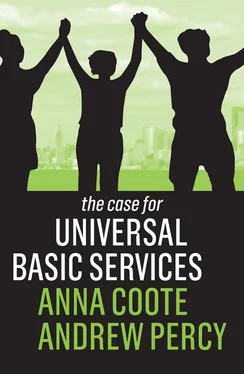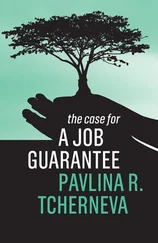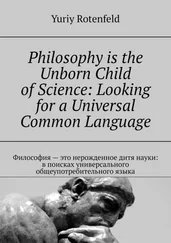Roosevelt’s New Deal and post-war welfare states involved pooling resources and sharing risks through the institutions of government. Most post-war settlements aimed to achieve full (male) employment, to provide income support for those who could not earn and to supply necessities that people could not afford to pay for individually in the form of public services that were free at the point of use. The political philosopher T. H. Marshall summed up the collective approach in the concept of ‘social citizenship’, which held that every member of society had positive economic and social rights as well as the more traditional ‘ negative’ rights that protected us from harm and maintained our civil liberties. 8
Social citizenship is anchored in both ethical and practical considerations. People are to be helped by their fellow citizens, rather than blamed and punished if they fall on hard times; and a thriving population is good for the economy. Civil and political rights cannot be realized unless people have sufficient social and economic means to live and act. Collective responsibility implies mutual obligations as well as rights. It’s a dynamic process where everyone gives and receives. Yet people cannot fulfil their obligations unless their basic needs are met.
This interdependence provides the moral foundation for every human society. The ‘moral economy’ underpins the material economy and ‘embodies norms and sentiments regarding the responsibilities and rights of individuals and institutions with regard to others’. 9
The collective provision of services to meet shared needs is worth as much or more to us than the money we earn through employment. Most simply, it is a virtual income that replaces out-of-pocket expenditure, leaving us more disposable cash. This is the virtual income or ‘social wage’ we referred to earlier. It’s a notion that can be traced back many decades, but it is too rarely discussed today. The economic historian R. H. Tawney observed that ‘the standard of living of the great mass of the nation depends, not merely on the remuneration which they are paid for their labour, but on the social income which they receive as citizens’. 10
The full worth of the social wage is even greater than its monetary replacement cost. It yields value indirectly and over time through the effects of services on others, not just ourselves, and on society as a whole. Furthermore, there is an important dimension of its value that does not feature in the theories of Durkheim, Marshall or Tawney but is inescapable today.
This is the imperative for human activity to remain within the ecological constraints of a finite planet. Unless we heed the scientists’ predictions, there is real danger that, within a matter of decades, there will be no recognizable human society for which to plan or deliver public services. Therefore any policy proposal that aims to improve human well-being must be designed to reduce harmful emissions, safeguard natural resources and stay within safe planetary boundaries.
As we shall argue, the fact that UBS is rooted in shared needs and collective responsibilities makes it far better placed to achieve sustainable practice than any welfare system based on market values and individual payments. It provides value not just for today but into the future, for generations to come. This accords with the most frequently quoted definition of sustainable development, in the 1987 Brundtland Report, as meeting ‘the needs of the present without compromising the ability of future generations to meet their own needs’. 11
1 1. P. Alston (2017), ‘Statement on Visit to the USA’, Geneva: United Nations.
2 2. P. Alston (2018), ‘Statement on Visit to the United Kingdom’, Geneva: United Nations.
3 3. M. Nussbaum (2000), Women and Human Development: The Capabilities Approach, Cambridge: Cambridge University Press.
4 4. L. Doyal and I. Gough (1991), A Theory of Human Need, London: Palgrave Macmillan, p. 4.
5 5. Ibid., fig. 1, p. 25; S. C. Miller (2012), The Ethics of Need: Agency, Dignity and Obligation, New York: Routledge.
6 6. N. D. Rao and J. Min (2017), ‘Decent Living Standards: Material Requisites for Human Well Being’, Journal of Social Indicators Research 138(1): 138–225.
7 7. E. Durkheim (1984), The Division of Labour in Society, London: Palgrave Macmillan, pp. 154–9.
8 8. T. Marshall (1965), ‘The Right to Welfare’, The Sociological Review 13(3): 261–72.
9 9. A. Sayer (2000), ‘Moral Economy and Political Economy’, Studies in Political Economy 61(1): 79–103.
10 10. R. Tawney (1964), Equality, 5th edn, London: Allen and Unwin.
11 11. Brundtland Commission (1987), Our Common Future, Oxford: Oxford University Press.
Конец ознакомительного фрагмента.
Текст предоставлен ООО «ЛитРес».
Прочитайте эту книгу целиком, на ЛитРес.
Безопасно оплатить книгу можно банковской картой Visa, MasterCard, Maestro, со счета мобильного телефона, с платежного терминала, в салоне МТС или Связной, через PayPal, WebMoney, Яндекс.Деньги, QIWI Кошелек, бонусными картами или другим удобным Вам способом.












